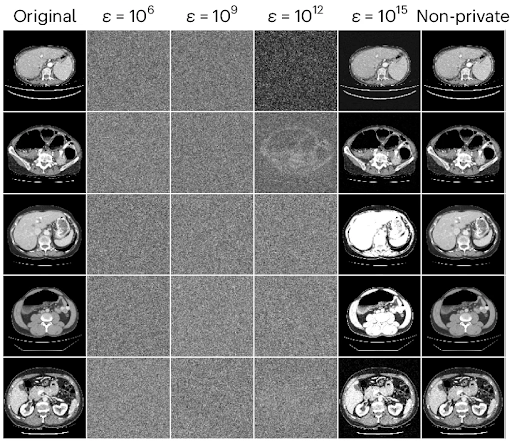In recent years, healthcare systems in the United States have faced various challenges in cancer care. As cancer practices aim to serve patients well, administrative tasks and routine inquiries can take away from the valuable time that healthcare staff spend on patient care. Automating routine inquiries with technology, particularly AI-driven solutions, could improve operational efficiency while allowing healthcare professionals to focus on more complex and critical tasks.
The Challenge of Routine Inquiries in Cancer Practices
Cancer treatment often requires many appointments, treatment sessions, and follow-ups, leading to numerous routine inquiries from patients. These inquiries may relate to appointment schedules, treatment protocols, insurance coverage, and general service information. Front-desk personnel and administrative teams can become overwhelmed with the number of phone calls and inquiries, potentially leading to burnout and lower job satisfaction.
A recent report indicated that healthcare workers spend as much as 30% of their time on administrative tasks instead of direct patient care. This shift can negatively affect patient experiences and outcomes, as staff may have less time to meet specific needs or tailor care plans. Moreover, as cancer treatments change, staying current with protocols and information is necessary for providing quality care.
In busy cancer practices, finding ways to lessen the burden of routine inquiries while improving staff engagement and retention is crucial. Streamlining workflows and enhancing communication methods are essential strategies to achieve this aim.
Embracing AI Technology for Efficiency
AI has become an influential factor in many industries, including healthcare. By incorporating AI-driven solutions into cancer practices, medical administrators can automate routine inquiries, greatly lightening the administrative load for staff. AI can effectively manage phone calls, scheduling, and basic inquiries, letting healthcare professionals focus on more detailed aspects of patient care.
Using AI technology enables medical practices to offer patients immediate support. With AI-driven systems, patients can get answers to common questions about appointments, treatment options, and medication adherence without directly speaking to a staff member. These systems usually function through natural language processing, allowing them to comprehend and accurately respond to patient inquiries.
AI and Workflow Automation
- Enhancing Patient Communication
AI technology improves communication with patients. Automated answering services can ensure that patients receive timely responses, whether they contact the office by phone or online. For example, a patient calling a cancer practice to ask about the next available chemotherapy appointment can get options quickly through an AI system analyzing real-time scheduling data. - Reducing Administrative Load
Automation can handle repetitive tasks such as confirming appointments, sending reminders, and following up on treatment plans. In a busy cancer practice, where call volumes often exceed hundreds daily, automating these tasks allows staff to concentrate on more complex patient needs. Additionally, this enables administrators to redirect staff skills toward patient-centered tasks that require critical thinking and personal interaction, improving overall care. - Customizing Responses
AI solutions can personalize responses based on patient history and preferences. For instance, if a patient has had recent treatments, an AI system can give tailored information on follow-up visits and potential side effects linked to that patient’s treatment plan. This capability includes retrieving and analyzing patient data seamlessly for effective communication and personalized care.
Addressing Concerns over Automation
While the advantages of automation in cancer practices are clear, some concerns remain about using AI systems. A major concern is the potential loss of personal interaction in patient communication. Healthcare is fundamentally a personal profession, and patients often seek the understanding and empathy only a human can provide. Therefore, while AI can address routine inquiries, it is crucial for practices to keep human staff available for deep conversations, emotional support, and issues needing human judgment.
Another concern is the initial investment in AI technology. However, studies show that investing in automated solutions can yield significant long-term savings. By relieving staff of routine tasks, cancer practices can decrease turnover rates, lower hiring and training costs, and enhance overall operational efficiency.
Case Studies: Successful Implementations
Several cancer practices in the United States have effectively implemented AI-driven automation for routine inquiries. For example, a cancer center in California reported a 50% reduction in call handling time after adopting an AI system for appointment scheduling and inquiry responses. The center also noted reduced staff turnover and improved job satisfaction among employees.
A mid-sized cancer practice in Texas integrated AI technology to handle follow-up appointment reminders, eliminating the need for staff to contact patients manually. This change resulted in a 30% increase in appointment attendance and improved adherence to treatment protocols. Patients expressed their satisfaction with the new system, noting the timely and accurate information they received.
Key Metrics and Trends in AI Adoption
Research shows that AI adoption in healthcare is rising. A recent survey found that 70% of healthcare administrators see integrating AI technology as vital for operational efficiency. Around 60% of respondents indicated that automating routine inquiries has significantly improved patient satisfaction.
As the demand for cancer care continues to grow, utilizing advanced technologies is essential. AI solutions are not merely a trend; they signify the future of operational efficiency in healthcare, allowing practitioners to focus on the complexities of patient care that matter most.
Implementation Steps for Cancer Practices
For cancer practice administrators looking to integrate automated solutions, there are several important steps to follow:
- Assess Current Workflows: Identify areas where automation can improve efficiency, such as appointment scheduling, patient follow-ups, and information inquiries.
- Select the Right AI Solution: Research various AI platforms and analyze their capabilities and suitability for existing systems. Choose a solution that can scale with the practice’s needs.
- Engage Staff and Patients: Involve staff in decision-making to encourage buy-in. Communicate changes to patients to help them understand how new systems will improve their experience.
- Test the System: Before full implementation, conduct a pilot program to assess the effectiveness of the new AI solutions and gather feedback from staff and patients.
- Measure Outcomes: Track the impact of the implementation on staff workloads and patient satisfaction. Adjust strategies based on collected data for continuous improvement.
Final Review
With the growing patient volume in cancer practices and the need for high-quality care, automating routine inquiries offers a practical solution to these challenges. AI technologies streamline administrative processes and allow healthcare staff to focus on more pressing and complex patient needs. By integrating AI solutions, cancer practice administrators can enhance operational efficiency, staff satisfaction, and patient experience. This technology helps cancer practices adapt to modern healthcare demands while keeping the human touch at the heart of patient care.
The post Automating Routine Inquiries in Cancer Practices: Freeing Staff for Complex Tasks first appeared on Simbo AI – Blogs.











